The Riccardo Muti era at CSO: First-class hires, memorable opera nights, and bland, repetitive programs
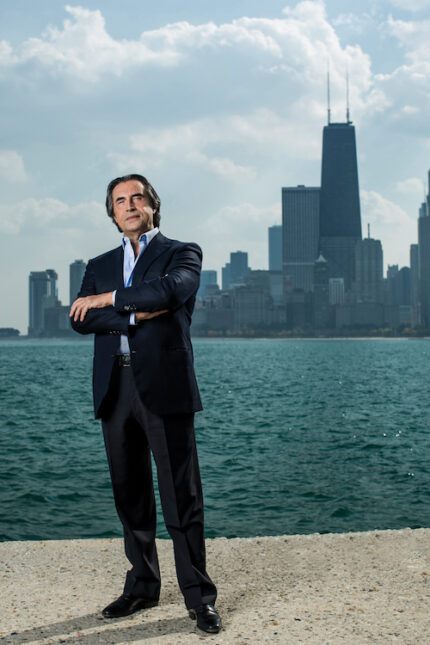
At 3 p.m. on Sunday, June 25, Riccardo Muti will give the downbeat for Beethoven’s Missa solemnis, a performance that will mark his final concert as music director of the Chicago Symphony Orchestra. (A free “Concert for Chicago” at Grant Park two days later will be the al fresco coda.)
When the celebrated Italian conductor took the reins of the CSO in 2010, there was great excitement and anticipation from musicians and audiences alike. 30,000 people packed Millennium Park for a concert of populist works.
In his debut season (2010-11) Muti was bedeviled by a series of health issues—withdrawing from a gala concert with Anne-Sophie Mutter minutes before the curtain, cancelling several events, returning to Italy due to “extreme exhaustion,” and then—upon his return—passing out during a rehearsal, falling and fracturing his jaw. Installing a pacemaker appeared to solve the medical problems, and Muti has remained healthy and an impressively vigorous and energetic podium presence into his 80’s.
As superb an ensemble as the CSO was when Muti came on the scene, there is no doubt that he has taken the orchestra to an even higher level. A demanding taskmaster, Muti’s insistence on accurate intonation, meticulous balancing and scrupulous fidelity to the score have all raised the qualitative level of the CSO—as well as raising expectations for local audiences.
Muti’s performances throughout most of his Chicago tenure have been consistently inspired—certainly more so than under his wildly uneven predecessor, Daniel Barenboim.
Over the past 13 seasons—interrupted by the pandemic in 2020-21—Muti’s CSO concerts have offered a discerning blend of textual fidelity and immaculate polish with consistent fire and theatrical excitement. Among the highlights early on were a balletic Bruckner Sixth Symphony, a barn-burning Beethoven Fifth, and an affecting performance of Shostakovich’s Suite on Verses of Michelangelo.
Performances of central repertoire by Mozart, Beethoven, Schubert, Brahms, Tchaikovsky, and Prokofiev were invariably first-rate—polished to a refined sheen with crackling excitement.
Muti largely neglected Haydn, Wagner and French repertoire, Berlioz apart. He remained wary of Mahler—oddly so as leader of a celebrated Mahler ensemble—limiting his outings to the First and Fourth symphonies and the Rückert-Lieder.
While truly memorable concerts have been less frequent in recent years, there have still been great nights: a riveting performance of William Schuman’s Symphony No. 9 (“Le fosse Ardeatine”) a rousing Philip Glass Eleventh Symphony and, especially, a revelatory Beethoven “Eroica,” which cries out to be released on CSO Resound, the orchestra’s house label.
But, unsurprisingly, Muti’s finest and most consistent achievements have come with concert performances of Italian opera, especially those by his beloved Verdi. Beginning with Otello in 2011, he has led well cast, world-class performances of Macbeth, Falstaff, Aida, Un ballo in maschera, a blistering bicentennial performance of the Manzoni Requiem, and Mascagni’s Cavalleria Rusticana. In this repertoire, Muti drew a remarkable range of colors, a striking degree of expressive depth and a thrilling theatrical intensity, which had one marveling anew at Verdi’s mastery. (Some of these live performances have been released on Resound.)
__________
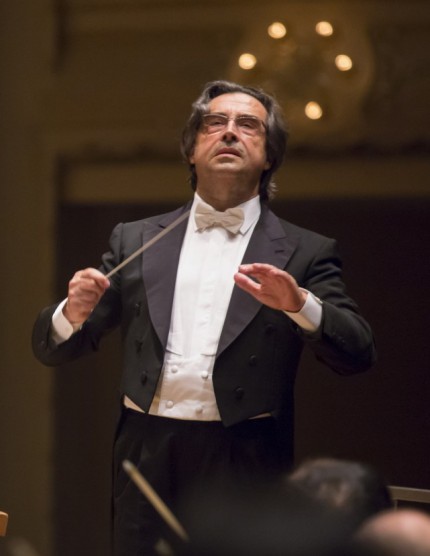
There have also been disappointments over the past 13 years, and none greater than Muti’s bland and repetitive programming.
For a music director that began his tenure with Berlioz’s oddball Lelio, one anticipated that Muti would be surveying a range of rarities and unusual repertoire in Chicago.
That never happened. Muti’s fitful excursions into rarely performed works by Italian and other composers ebbed after a few seasons. Contemporary music was largely restricted to conducting a single annual premiere by the CSO’s composer in residence. Guest conductors were often tasked with important local or U.S. premieres.
The most notable failure of Muti’s tenure leading this top American orchestra has been his lack of interest in exploring the vast array of excellent, neglected American music of the past. He waited nine years into his tenure before conducting an American symphony (the aforementioned Schuman) and one can count the number of homegrown symphonies Muti has conducted over 13 years on one hand and still have fingers left over. He never conducted a note of unjustly overlooked composers like David Diamond, Walter Piston or Paul Creston. (Someone should have informed him that Piston’s family name was Pistone and that Creston was born Giuseppe Guttoveggio.) The exhilarating results he obtained in isolated events like the Schuman and Glass concerts make it even more frustrating that Muti showed such little interest in being more of an advocate for American music.
Instead, Chicago audiences repeatedly got self-referential Italian (and “Italian”) rep, many of dubious musical interest and quality, like the Respighi tone poems, Strauss’s Aus italien and Bizet’s numbing Roma.
One problem is that conductors in Chicago are invariably allowed to stay on the job too long—whether their tenure has been successful or not. Muti’s term was extended a year due to the pandemic, but the partnership with the orchestra started losing artistic steam around the decade mark (as relationships often do).
As the years passed, Muti’s programs became increasingly repetitious and the results less fresh, louder and more predictable–brass tending to blare and tuttis that have been over the top and deafening.
In late years, he seemed more interested in taking the CSO on international tours where he could bask in the applause of Europeans—rather than providing varied and thought-provoking programs for Chicago audiences at home.
__________
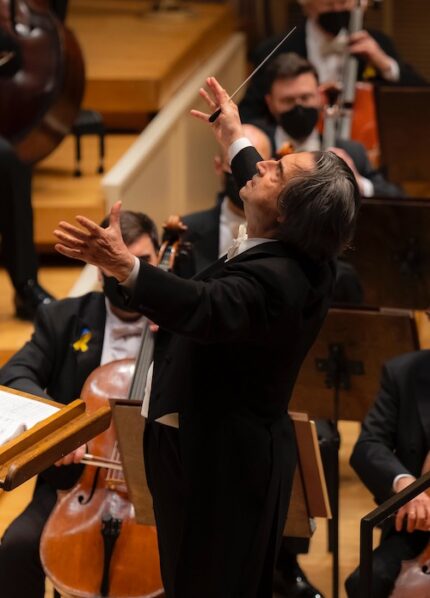
The early PR promotion of Muti as a selfless humanist and philosopher-musician clanged dissonantly with his imperious and often patronizing behavior with CSO staff and admin. Despite his early, heavily publicized trips to prisons and community concerts, Muti made little impact in the troubled, increasingly violent landscape of Chicago beyond the walls of Symphony Center.
The conductor remains a popular figure among the CSO ranks but even that support had begun to wane with many long feeling it’s time to move on. Muti’s essentially going AWOL during the pandemic—leaving the orchestra to deal with the closed hall and economic impact largely on its own—cooled the affection of many players.
Likewise, his press relations began on a high note. Muti can be a charming, witty and engaging presence one-on-one and in private settings.
Yet it became clear early on that when it comes to the media, Muti didn’t want critics—he wanted disciples.
The conductor seemed to expect the fanboy celebrity adulation he routinely receives from the Italian press to be repeated in Chicago. He bristled at negative reviews and criticism of his repetitive programming.
He soon emphasized interviews with national and international outlets, where the coverage tends to be more laudatory and the questions innocuous (and often uninformed).
Locally, Muti prefers controlled meetings where he can hold court, limited to the least critical of writers—individuals with a strange psychological desire to be close to the throne, and/or those who view the role of arts journalists as collaborative partners in a kind of kumbaya cultural chamber of commerce.
Stories of Muti’s personal generosity and kindnesses to CSO musicians are legion. Unfortunately, so are his high-handed ego displays and lording his status over staff and administration—from his public ridicule of CSO president Jeff Alexander to the fast-spinning revolving door of exiting senior staff, many of whom had been at the orchestra for decades. There’s little doubt that there will be a huge collective sigh of relief from CSO offices when Muti finally walks out the door at the end of this month.
__________
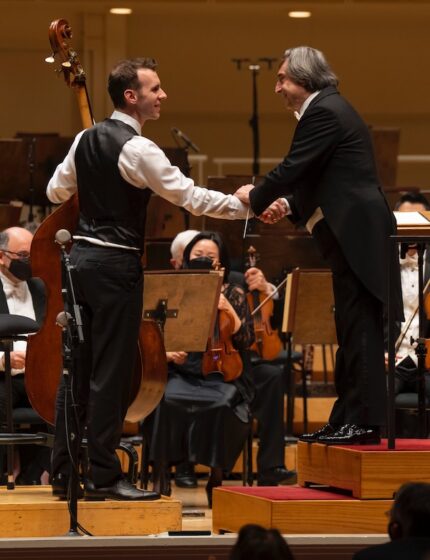
Muti’s greatest and most lasting legacy in Chicago—even more than his performances and recordings—will be the musicians he has hired, nearly all of whom have been outstanding.
There have been lapses. Rehiring former principal oboe Alex Klein—who suffers from a chronic physiological condition—to his old chair verged on madness. And Muti’s deciding vote rejecting David Cooper as principal horn following his trial period continues to rankle musicians and audience members alike—especially after Cooper’s rock-star turn in Mahler’s Ninth Symphony last week.
(Muti will have zero say in personnel matters after this month. If Cooper doesn’t go to Los Angeles, as is rumored, it is not impossible that a way may yet be found for the popular player to remain in his position.)
But the conductor’s successful hires have far outnumbered his mistakes, especially in crucial principal chairs. Clarinetist Stephen Williamson, oboist William Welter, flutist Stefán Ragnar Höskuldsson, bassoonist Keith Buncke, timpanist David Herbert, double-bass Alexander Hanna, and trumpet Esteban Batallán have all been terrific additions to the CSO roster, world-class musicians who have helped to make every concert a richer experience.
So, Addio, senza rancor to the mercurial Italian maestro.
With eight of Muti’s ten weeks freed up, the 2023-24 lineup provides the most varied and wide-ranging CSO programming in over a decade.
The music director job remains open and this will prove to be a fascinating CSO season for Chicago audiences. With an array of superb guest conductors, nearly every week will bring a potential Riccardo Muti successor to the Orchestra Hall podium.
Riccardo Muti conducts the CSO June 15-17 in Schubert’s Symphony No. 9, Johann Strauss’s Overture to Indigo and the Forty Thieves, and Lalo Schifrin’s Tuba Concerto with soloist Gene Pokorny.
In his final program as music director, Muti conducts Beethoven’s Missa solemnis June 23-25. cso.org
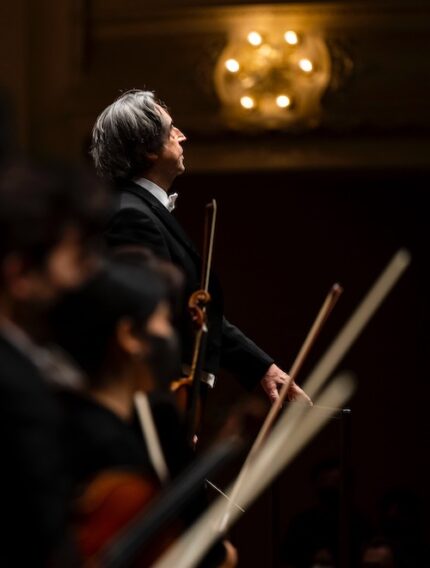
Posted in Articles




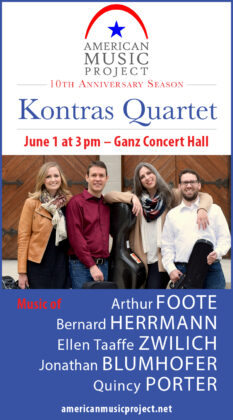
Posted Jun 12, 2023 at 2:13 pm by John
Whatever happens, just don’t let the CSO go down the same path as the Lyric Opera under its management. I.e., down –really, really down.
Posted Jun 12, 2023 at 4:03 pm by Luana Miller
Daniel Barenboim was super!
Posted Jun 12, 2023 at 6:09 pm by Nick K
I’m still hurting over Claudio Abbado’s departure as principal guest conductor.
Posted Jun 12, 2023 at 7:17 pm by Richard T
I remember the Shostakovich “Babi Yar” very fondly too. That series was specially memorable because Mme. Irina Shostakovich was in town for those concerts.
I heard Solti’s Babi Yar as well-in 1995 in one of his last concerts with CSO. Wow, how time flies!
Posted Jun 12, 2023 at 8:16 pm by Christian Vinyard
This is a most insightful review of the Muti years. Thanks. I enjoy these columns which are most beneficial.
Posted Jun 12, 2023 at 9:12 pm by CA
Couldn’t agree more. The CSO billing 100% rehash as “Muti’s Greatest Hits” has been hard to swallow. Soooo ready for him to move on.
Posted Jun 12, 2023 at 11:26 pm by Roberta
I am also relieved that Muti is leaving. Above all, I don’t understand people who praise his “wits”. His interviews are as dull and repetitive as his music.
Posted Jun 13, 2023 at 6:51 am by Tod Verklärung
“Muti’s performances throughout most of his Chicago tenure have been consistently inspired—certainly more so than under his wildly uneven predecessor, Daniel Barenboim.” A careful reading of Mr. Johnson’s own reviews reveals that many performances were far from inspired. Indeed, Bernard Haitink offered consistently satisfying interpretations more often in his caretaker role between Barenboim and Muti.
The CSO has done its best to advertise Muti’s episodic greatness. Are Covid and fear of Downtown Chicago the only reasons the CSO has so many empty seats and has to discount tickets to achieve partially filled halls?
Should it be a surprise that the CSO uses its own label to make recordings? Boston, New York, Los Angeles, and Philadelphia have been attached to important brands during the Muti years.
Many concert-goers wait for a conductor worthy of their attention and attendance. Our wonderful orchestra is like Sleeping Beauty waiting for Prince (or Princess) Charming’s awakening kiss.
Posted Jun 13, 2023 at 9:21 am by Walter Simmons
Thank you for noting Muti’s neglect of the great American symphonic school of composers. We won’t remedy that until we abandon this attraction to foreign conductors. That’s the only hope for finding a conductor who has the capability to grasp this repertoire.
Muti’s recorded performance of Persichetti’s Symphony No. 5 illustrates just how feebly he understands this repertoire. However, his performance was vastly better than that of the same work conducted by Carlo Maria Giulini (with the CSO) who played a truncated version badly.
This problem will not resolve until people begin to treat American composers with the respect that they afford to Europeans. Then it will matter whether a conductor has the musicianship to address American symphonic music.
Posted Jun 13, 2023 at 1:44 pm by Roger
Appreciate reading objective article summarizing Muti’s tenure as CSO Music Director. A recent one in the local press was a bit saccharin.
Muti presented numerous excellent performances, not only of Verdi, the repertoire mentioned, but also a memorable Dvorak 9th, Schubert symphonies and masses and yes, Respighi. He, like Barenboim, deservez kudos for hiring excellent musicians. Subscribing for more than 40 years, the CSO sound is now more lyrical. The strings remind me of the Ormandy Philadelphia Orchestra Sound when I began attending classical music concerts.
As prominently mentioned, Muti’s failure to program Mahler was his biggest shortcoming, reinforced by the wonderful performances of Mahler’s 5th, 6th and 9th symphonies by guest conductors the past two seasons.As for programming American composers, kudos to Carlos Kalmar and the GPMF for programming and promoting them.
Troubling, also, was his’s vetoing tenure for Daniel Cooper. May this gross oversight be corrected after 6/28!
This being said, “Arrivederci Riccardo!”
Posted Jun 13, 2023 at 5:20 pm by turin
Who is surprised that Muti did not conduct important American composers? Based on his interviews over decades, he despises anything American, except the dollar! American composers are beneath him obviously.
We are the fools who gave him millions and still jump on standing ovations for any of his subpar performances.
Posted Jun 13, 2023 at 9:16 pm by Frank
The blandness of the programming is painful when one sees what’s happening now at the NY Phil, joining the Philadelphia Orchestra and the LA Phil with often imaginative and fresh programs of new and old works. Even boring old Boston may be looking up with new management.
Chicago, meanwhile, gets cut-and-paste Rossini overture + Mozart piano concerto + Brahms symphony week in and week out.
Posted Jun 14, 2023 at 5:03 am by Roger
“those who view the role of arts journalists as collaborative partners in a kind of kumbaya cultural chamber of commerce.”
Ha! Looking at you, WTTW and WDCB.
Thank you for this tough yet fair assessment of the Muti years. I’m not sure I agree the earlier American composers constitute his greatest area of neglect (who does that rep these days?) but certainly more recent composers have been neglected: Adams, Reich, Rouse, Higdon, Part, Muhly, Luther Adams, Shaw, Kernis, the list goes on.
Posted Jun 14, 2023 at 6:36 am by Christopher Sheahen
Thanks for a fair assessment of the Muti years. I’m disappointed that he didn’t relate well to staff. I wish I understood why he voted against tenure for David Cooper. Cooper’s work is consistently solid. The audiences seem to love Muti though.
Posted Jun 14, 2023 at 10:49 am by Lt. Kije
In response to the boring old Boston comment; the BSO programming for the 2023/2024 season is the most underwhelming I’ve seen in 10 years. It always bothers me when people assume that changing the programming formula away from warhorses is inherently good and that what has been successful on the West Coast will be successful on the East Coast.
Also, the “new management” has me highly concerned knowing his reputation in the industry.
Posted Jul 15, 2023 at 7:30 am by Dileep Gangolli
Great review. Well written and a good summary of this era of the CSO. I always found his music making boring but I am in the minority.